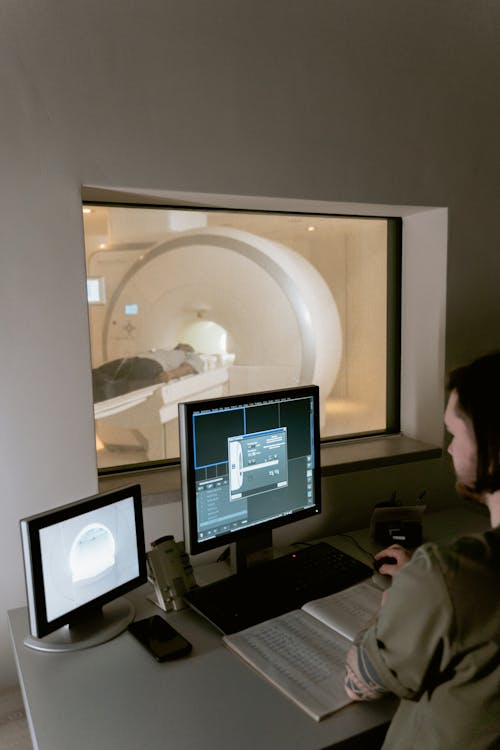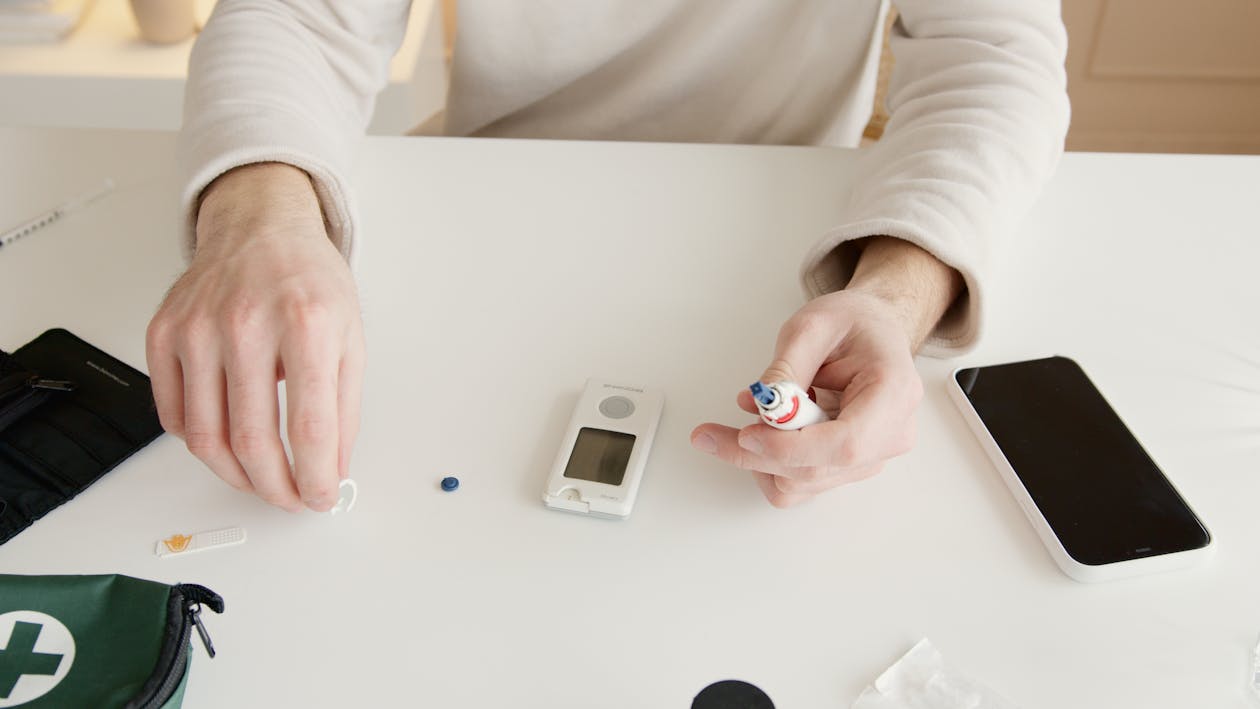Introduction
The healthcare industry has seen a significant increase in innovation and disruption in recent years, thanks to the rise of start-ups. These young and ambitious companies are challenging traditional healthcare systems and driving positive change in the way we receive medical treatment. In this article, we will explore the role of start-ups in revolutionizing healthcare and showcase some of the groundbreaking solutions and technologies that are transforming patient care. From digital health solutions to personalized medicine and advancements in medical devices, start-ups are making a significant impact in the industry. Join us as we dive into the world of start-ups in healthcare and see how they are shaping the future of patient care.
The Rise of Start-ups in Healthcare
With the growing demand for innovative solutions in the healthcare industry, the number of start-ups focused on healthcare has significantly increased in recent years. These start-ups are challenging traditional healthcare systems and driving positive change by offering alternative approaches to patient care. The diverse range of start-ups in the industry brings a fresh perspective and encourages competition, ultimately resulting in better healthcare services for patients. Through their innovative ideas and technologies, start-ups are disrupting the status quo and addressing long-standing issues in the healthcare sector. This rise of start-ups in healthcare is a promising trend that has the potential to transform patient care and improve overall health outcomes.
Digital Health Solutions

The rise of start-ups in the healthcare industry has brought about significant advancements in patient care. One of the most impactful areas is the development of digital health solutions. These innovative technologies are revolutionizing the way we receive medical treatment. Through the use of telemedicine, patients can now consult with doctors remotely, saving time and increasing accessibility. Wearable devices are also changing the game, allowing for continuous monitoring of health conditions. Successful start-ups like Babylon Health and Lemonaid Health have made a significant impact in this space. These digital health solutions not only improve efficiency and convenience for patients, but also allow for better data collection and analysis for healthcare providers. With the rapid advancement of technology, we can expect to see even more groundbreaking digital health solutions in the near future.
Personalized Medicine

Start-ups are transforming the way we approach patient care through personalized medicine. By utilizing data and artificial intelligence, start-ups are able to create personalized treatment plans for each individual, taking into account their unique medical history, genetics, and lifestyle. This personalized approach has the potential to greatly improve patient outcomes and reduce healthcare costs.
One example of a successful start-up in this field is 23andMe, which offers genetic testing and personalized health reports to individuals. By analyzing their DNA, 23andMe can provide personalized insights on potential health risks and recommendations for preventative measures.
Another innovative start-up in this space is Tempus, which uses data and AI to analyze tumor DNA and create personalized treatment plans for cancer patients. This approach has shown promising results in improving patient outcomes and reducing side effects from treatments.
The use of personalized medicine by start-ups is not only transforming patient care, but also challenging traditional healthcare systems and promoting a more patient-centered approach. With continued advancements in technology and data analysis, the potential for personalized medicine to revolutionize healthcare is limitless.
Improving Access to Healthcare

Start-up companies are not only transforming patient care, but they are also addressing the issue of accessibility in healthcare. With the rise of virtual clinics and mobile health apps, start-ups are making it easier for patients to access healthcare services from the comfort of their own homes. This is especially beneficial for those who live in remote areas or have limited mobility. Additionally, these solutions can also reduce the burden on traditional healthcare systems, making it easier for patients to schedule appointments and receive timely care.
Moreover, start-ups are also focused on providing affordable healthcare solutions through their innovative technologies. This can greatly benefit underserved populations who may not have access to quality healthcare due to financial constraints. By bridging the gap between traditional healthcare systems and patients, start-ups are playing a critical role in improving access to healthcare for all individuals.
An example of this is Lemonaid Health, a start-up that offers online consultations and prescription services at an affordable cost. This has made it easier for individuals to receive medical treatment without having to worry about high costs or long wait times. As more start-ups continue to tackle the issue of accessibility in healthcare, we can expect to see a more inclusive and equitable healthcare system in the future.
Advancements in Medical Devices

Start-ups in the healthcare industry are not only developing innovative solutions and technologies, but also advancing the development of medical devices. These devices are playing a crucial role in improving patient care and outcomes.
One of the key areas of development in medical devices is in the field of prosthetics and implants. Start-ups are using cutting-edge technology and materials to create more functional and durable prosthetics, improving the quality of life for individuals with disabilities. Additionally, start-ups are also developing advanced medical devices, such as smart contact lenses and wearable sensors, to monitor and track patient health in real-time.
Not only are these advancements improving patient care, but they are also reducing the cost and complexity of traditional medical devices. For example, 3D printing technology is being used by start-ups to create customized medical devices at a fraction of the cost of traditional manufacturing methods.
Some successful start-ups in this field include Open Bionics, which creates affordable and customizable bionic limbs, and Nanowear, which develops wearable sensors for early detection and monitoring of health conditions.
With the help of start-ups, the future of medical devices looks promising, with the potential to greatly improve patient outcomes and revolutionize the healthcare industry. These advancements also pave the way for further collaborations and partnerships between start-ups and traditional healthcare institutions, leading to even more groundbreaking solutions for patient care.
Collaborations and Partnerships
Collaborations and partnerships between start-ups and traditional healthcare institutions are crucial in driving positive change and improving patient care. By combining the innovative ideas and technologies of start-ups with the expertise and resources of established institutions, we can create holistic solutions that have a greater impact on the healthcare industry.
There have been successful collaborations between start-ups and institutions, such as partnerships between health tech companies and hospitals to develop telemedicine platforms. This has not only improved access to healthcare for patients, but also increased efficiency and reduced costs for healthcare providers.
In the future, we can expect to see more collaborations and partnerships between start-ups and institutions, as the potential for positive impact becomes more evident. This will not only benefit patients, but also create a supportive environment for start-ups to thrive and continue driving innovation in the healthcare space.
Keep an eye out for exciting developments in the collaborations and partnerships between start-ups and healthcare institutions, as they have the potential to revolutionize the way we receive medical treatment.
The Future of Healthcare
As we look towards the future of healthcare, it is clear that start-ups will continue to play a crucial role in transforming patient care. With their innovative solutions and technologies, start-ups are driving positive change and improving outcomes for patients.
The potential for further growth and advancements in the start-up healthcare industry is immense. With the rise of digital health solutions, personalized medicine, and advanced medical devices, we can expect to see even more groundbreaking solutions emerge in the coming years.
However, start-ups in the healthcare space also face challenges such as regulatory hurdles and funding limitations. It will be important for these start-ups to continue to collaborate with traditional healthcare institutions and foster partnerships in order to overcome these challenges and continue to drive innovation.
As patients and healthcare providers alike demand more efficient, accessible, and personalized care, the role of start-ups in the healthcare industry will only continue to grow. Keep an eye out for exciting developments and advancements in the start-up healthcare space, as they have the potential to revolutionize the way we receive medical treatment.
Conclusion
In conclusion, start-ups are playing a crucial role in revolutionizing the healthcare industry. From digital health solutions to personalized medicine and advancements in medical devices, these innovative companies are challenging traditional systems and driving positive change. Collaborations with traditional healthcare institutions further enhance the potential for innovation and improved patient care. With the rise of start-ups in healthcare, we can expect to see more groundbreaking solutions and technologies in the future. As patients, it is important for us to keep an eye on these developments and support the growth of start-ups in the healthcare space. Let’s embrace the power of innovation and look forward to a brighter and healthier future together.

